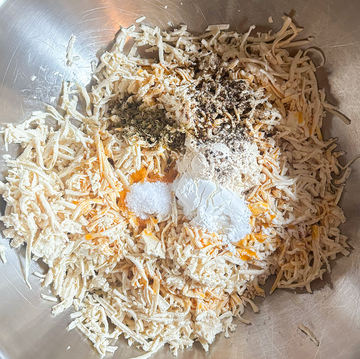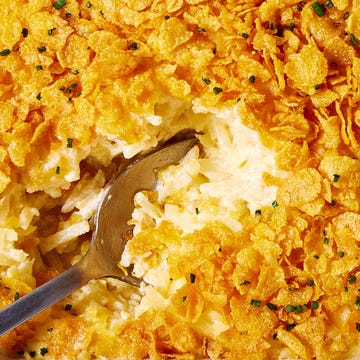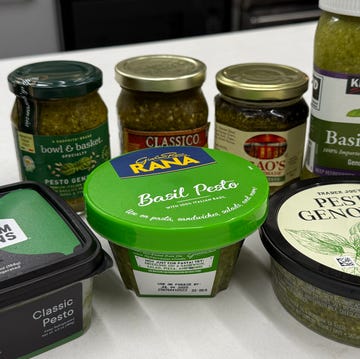For most people I know, a cup of coffee first thing in the morning is a non-negotiable. You won't catch me trying to make nice with any of my friends until after I know their mood has stabilized, thanks to that jolt of caffeine. While many people swear by starting their day with a cup of joe before they can accomplish anything else, it begs the question: Is it even good for you to drink coffee on an empty stomach?
As it turns out, for most people, it's fine. However, we spoke with two health experts and found out there are a few things you should know.
While it's a common habit to drink coffee first thing in the morning, it can have mixed effects depending on the individual, explains health and nutrition expert Lauren Manaker. "For some, coffee on an empty stomach might cause digestive discomfort, such as acidity or heartburn, due to its naturally acidic properties," Manaker tells Delish.
Drinking coffee with food helps slow its absorption, which will help negate those acidic qualities, explains registered dietician nutritionist Amy Brownstein. "Alternatively, add cow or non-dairy milk to your coffee to counteract some of its acidity," she recommends. Milk or plant-based alternatives can also help buffer the stomach lining and reduce irritation, per the Mayo Clinic.
Another potential impact of drinking coffee on an empty stomach is that it can affect how much food you eat later. "Drinking coffee first thing in the morning on an empty stomach may influence your food intake, making it challenging to eat breakfast early in the day," says Brownstein. Manaker expands, explaining that drinking coffee on an empty stomach may promote feelings of fullness, making it harder to consume all of the nutrients your body needs during the day. Over time, this could impact your energy levels and overall nutrition.
Drinking coffee on an empty stomach can cause temporary spikes and subsequent drops in blood sugar, which may lead to fatigue, irritability, and hunger. (This is particularly relevant for people with diabetes or insulin sensitivity.) For those who drink their coffee with sugar, Brownstein says that adding in some milk can also prevent blood sugar spikes. The American Medical Association (AMA) says that consuming coffee with food can help stabilize blood sugar and prevent energy crashes later in the morning.
Lastly, Manaker notes that drinking coffee on an empty stomach can increase feelings of jitters or anxiety since caffeine is absorbed more quickly without food. This is especially true for people sensitive to caffeine or those prone to anxiety.
"If you enjoy your morning coffee but have concerns, try pairing it with a small snack or breakfast to help buffer its effects," says Manaker. "Ultimately, listening to your body is key, as everyone's tolerance and responses to coffee can vary."
Manaker also suggests pregaming your coffee with a room-temperature glass of water, since not only are most people not hydrated enough, but coffee has the potential of quenching your thirst—a double whammy!
The bottom line: For most people, drinking coffee on an empty stomach is not inherently harmful, but it can cause digestive discomfort, blood sugar fluctuations, and increased feelings of anxiety or jitters in some individuals. So, pay attention to how you feel after your morning cup. If you experience any adverse symptoms, try having coffee with food or after eating, and always listen to your body.













